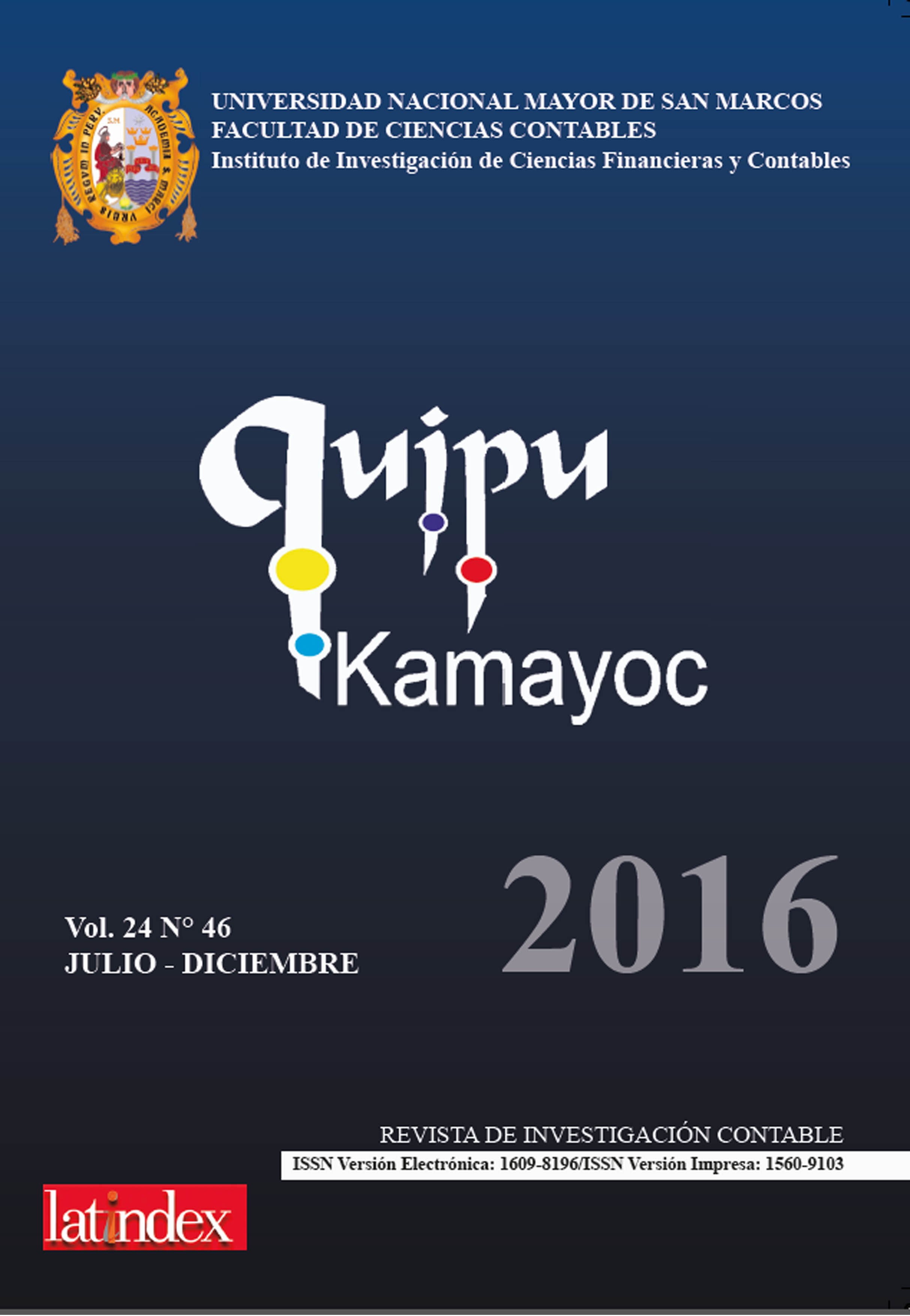ECONOMIC FREEDOM AND INDIVIDUAL WELFARE IN PERU
DOI:
https://doi.org/10.15381/quipu.v24i46.13206Keywords:
Economic freedom, Influence, Individual Welfare PeruAbstract
The research made possible to explain why economic freedom was a factor that contributed to improving individual well-being in Peru during the period 1970-2014. Based on this objective, a descriptive analysis was performed on the relationship between the variables, plus two approximations were used based on the inferential analysis: Spearman correlation coefficient and Ordinary Least Squares estimate.Thus, the main results show that there is a relationship between the Index of Economic Freedom and the Gross Domestic Product per capita, and the strong degree of this relationship. In addition, it was found that the sense of the relationship is positive and statistically significant.In this way, it was concluded that economic freedom is one of the factors that influenced individual welfare, and consequently, general well-being of the population. However, economic freedom is necessary but not a sufficient condition for determining well-being. Therefore, among the main aspects of economic freedom in Peru we found improvements in the regulation of credit, labor and business, international trade and financial strength, as well as more modest advances in the legal structure and size of government.
Downloads
Downloads
Published
Issue
Section
License
Copyright (c) 2016 Vladimir Rodríguez Cairo

This work is licensed under a Creative Commons Attribution-NonCommercial-ShareAlike 4.0 International License.
AUTHORS RETAIN THEIR RIGHTS:
a. Authors retain their trade mark rights and patent, and also on any process or procedure described in the article.
b. Authors retain their right to share, copy, distribute, perform and publicly communicate their article (eg, to place their article in an institutional repository or publish it in a book), with an acknowledgment of its initial publication in Quipukamayoc .
c. Authors retain theirs right to make a subsequent publication of their work, to use the article or any part thereof (eg a compilation of his papers, lecture notes, thesis, or a book), always indicating the source of publication (the originator of the work, journal, volume, number and date).





























